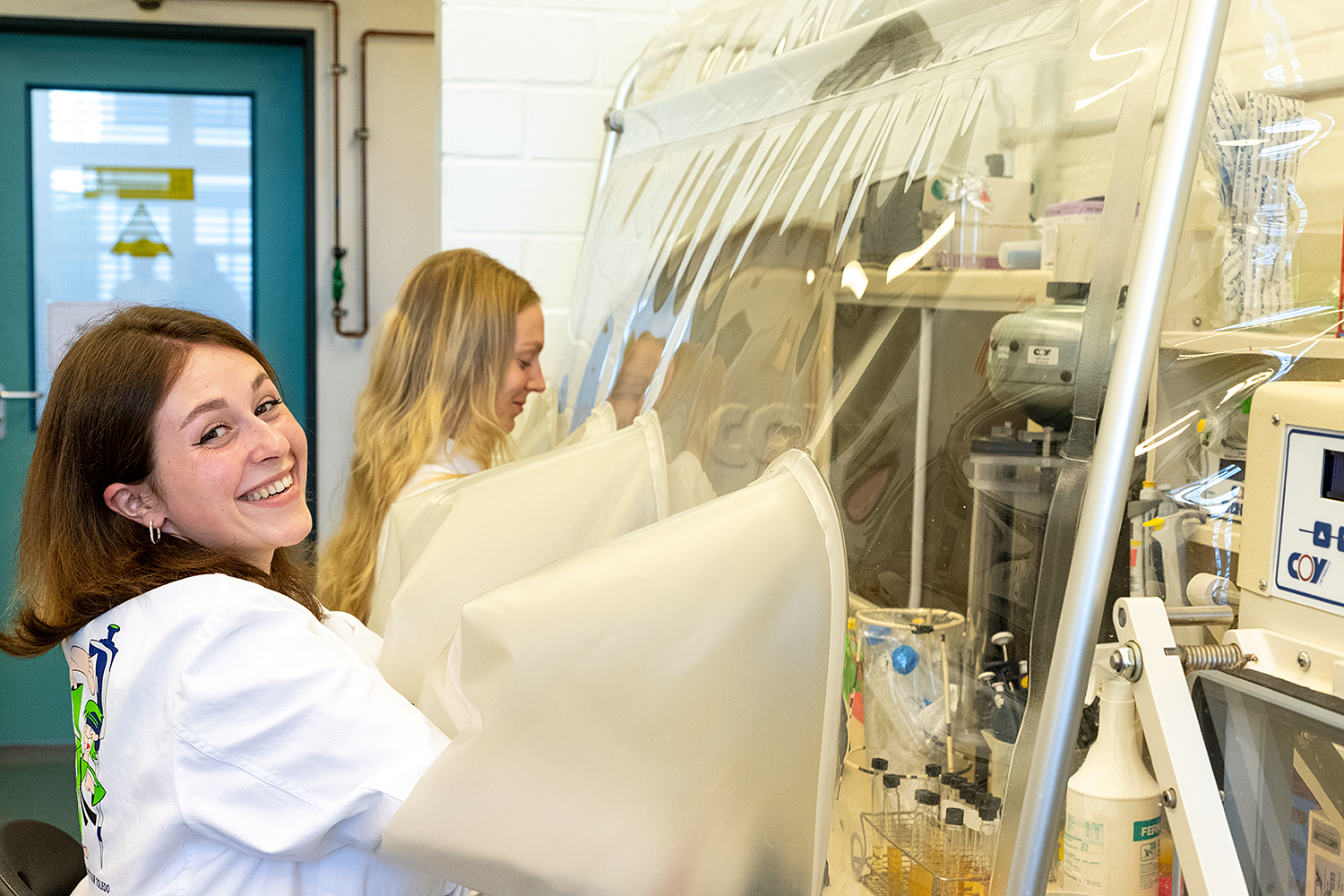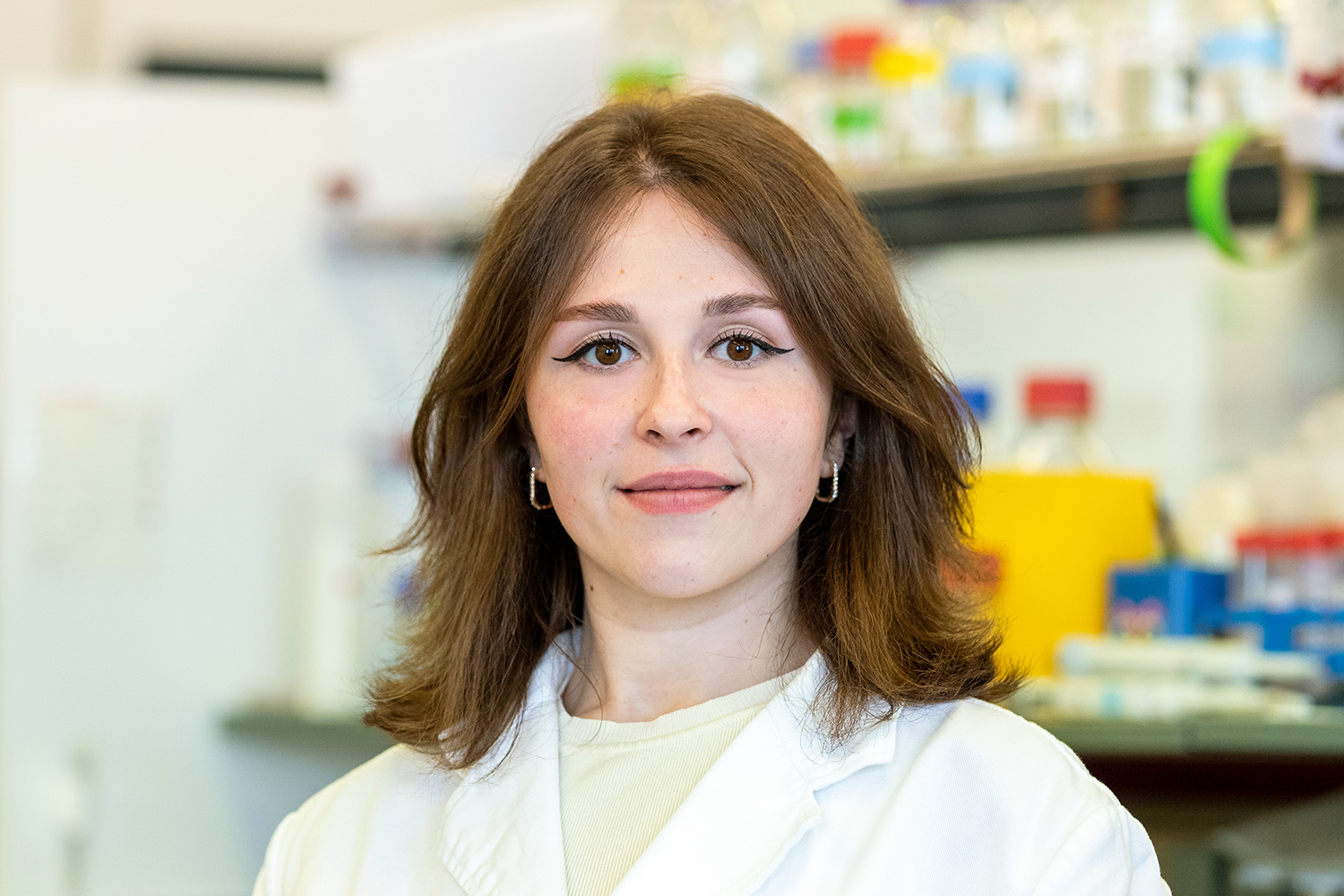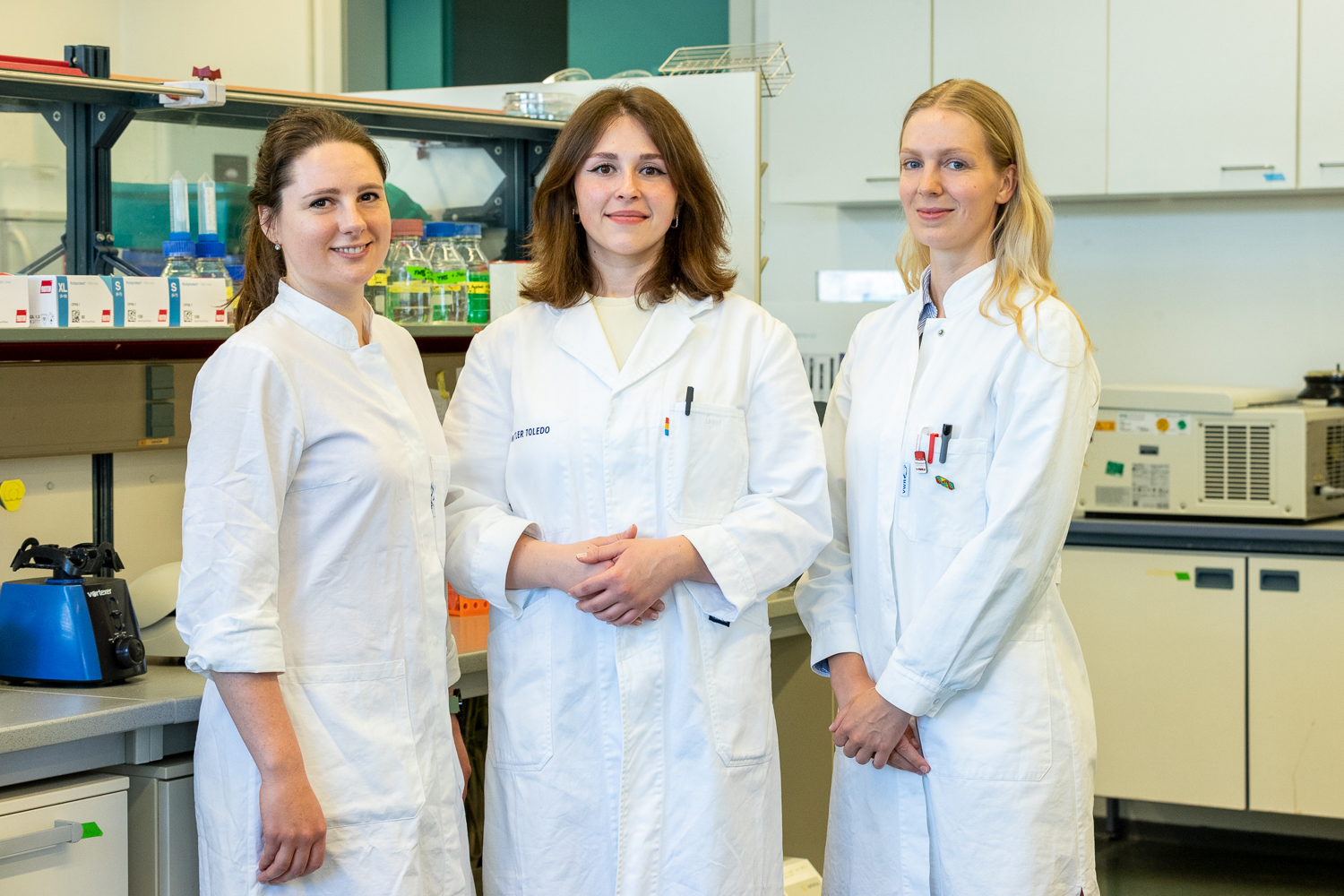Being a Ukrainian refugee at TU Braunschweig About the biologist Alona Velynska and her encounters in Germany
After fleeing from Kiev, Alona Velynska was given the opportunity to continue her doctorate at TU Braunschweig. At the Braunschweig Integrated Centre of Systems Biology (BRICS), she is investigating the effects of the fungicide tebuconazole on the microbiome, i.e. the totality of microorganisms, of mice and earthworms. Above all, the encounters with people have helped her to be able to continue her scientific career.

Alona Velynska at work in the BRICS at TU Braunschweig. Photo credit: Kristina Rottig/TU Braunschweig
Alona Velynska lived in Ukraine until February 2022. She has been in Germany since May 2022, and since March this year she has been researching again—at the BRICS at TU Braunschweig—on the effects of pesticides on the microbiome of earthworms and mice. She is able to continue working on her doctoral thesis here as a research associate and doctoral student due to many rather coincidental encounters. When Alona Velynska arrived in Germany, she had long since inwardly said goodbye to her life as a scientist:
“I was sure: without knowing German and without a German degree, I would never get into a university. And I would never have known who to turn to either.”
But when the head of the Institute of Microbiology and BRICS spokesperson, Prof. Dieter Jahn, heard about Alona Velynksa, it quickly became clear to him and his wife Dr. Martina Jahn: “We want to help her gain a foothold at the TU and ensure that she can continue with her research.”
From Kiev to Braunschweig
In Ukraine, the then 25-year-old was in the middle of her doctoral thesis and working on establishing herself as a scientist. When war broke out, she spent two weeks in Kiev in fear for her life before fleeing by train to Poland. She traveled on from Poznań to Berlin and from there to Hanover until she landed in Wolfenbüttel. Here she felt safe for the first time since she fled and was able to rest. But she soon had to find a place to live, a job, because she couldn’t stay in the collective accommodation for refugees.

Fled from Ukraine and started anew in Braunschweig: Alona Velynska. Photo credit: Kristina Rottig/TU Braunschweig
During a consultation at the Red Cross, she found out about Prof. Reza Asghari, head of the Entrepreneurship Hub at TU Braunschweig and Ostfalia University of Applied Sciences. She sent him her CV and academic work history. Prof. Asghari then put her in touch with Prof. Dieter Jahn. After getting to know each other, the Jahns decided to support Alona Velynska on her way back into research.
A mini-job in February was followed by employment for a year as a research associate and doctoral student at BRICS. The Jahns also helped with finding accommodation, moving house, dealing with the authorities and translations. The Studierendenwerk OstNiedersachsen (Student Services) immediately provided a flat, the Braunschweig Hochschulbund financed the deposit and the first rent quickly and straightforwardly, when Alona Velynska was not yet receiving a salary.
Research on the effects of pesticides
In the meantime, the scientist has settled well into her new everyday life. She is taking a German course at the International House, an institution of TU Braunschweig that takes care of international activities. She feels really at home in her laboratory at TU Braunschweig. “My colleagues create a great working atmosphere and support me in all professional and private questions.

Alona Velynska (m) with intern Anna Vassin (student), colleague Wiebke Bartram ( doctoral student, r.). Photo credit: Kristina Rottig/TU Braunschweig
Alona Velynska was able to resume the topic of her doctoral thesis from Ukraine and is continuing her research on the fungicide tebuconazole. This fungicide is approved as an active ingredient in plant protection products in many EU countries, including Germany. In order to clarify the possible and as yet unexplored effects of tebuconazole in the use of plant protection products, Alona Velynska is investigating the effects of the fungicide on the microbiome of mice and earthworms. The microbiome seems to play an important role in the undesirable side effects of the substance.
Many people are needed to facilitate integration
What does she like about Braunschweig? The many churches, cultural offerings and the parks, she says. But above all, she is very grateful for the help she gets from the people here. “I’m nothing special, why are people so willing to help me?” she asks herself again and again. To this Prof. Jahn says:
“Integration is a process that needs many people’s help. We don’t want to get anything in return, we just want to support young Ukrainians and train them well so that one day they can help rebuild their country. Many more refugees should get this chance, because helping people in such situations is the only right thing to do!”
Author: Dorothea Hinz
